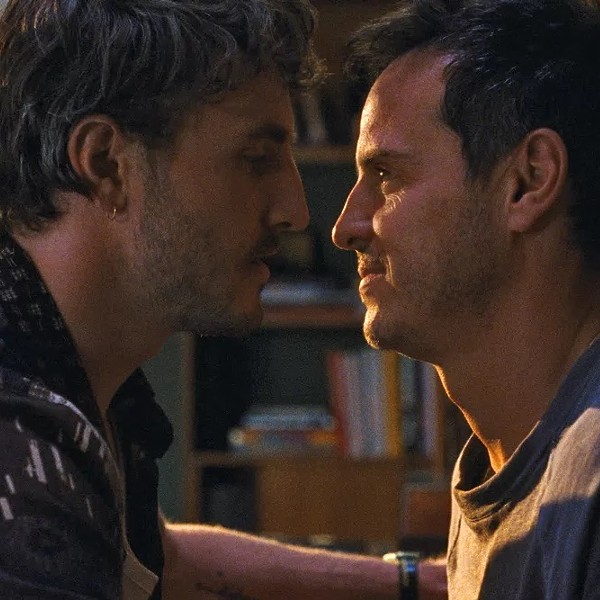Jean Cocteau famously decreed that "Film will only become art when its materials are as inexpensive as pencil and paper," and considering the enormous cost of equipment in Cocteau's era, the very notion was practically science fiction. Now with the proliferation of cheap digital cameras and virtually free editing software, the day is upon us; but just like your parents told you, with freedom comes responsibility.
In 1995, Danish filmmakers Thomas Vinterberg and Lars von Trier co-founded the Dogme 95 movement and published their "Vow of Chastity," a 10-point manifesto laying down a rigorous set of rules designed to help a filmmaker "force the truth out of characters and settings." By signing the agreement he or she swore "to do so by all the means available and at the cost of any good taste and any aesthetic considerations."
Though the Dogme 95 manifesto was nailed to Hollywood's door nearly 10 years ago, only 35 feature films carrying an official Certificate of Authenticity have been produced to date. This probably says less about the difficulty of upholding the strenuous conditions than practical expediency, however; many of Dogme's rules, originally conceived as a reaction to overly polished filmmaking that buffs the edges off authentic behavior, are simply a matter of course for the modern-day low-budget digital filmmaker (Rule #1: Shooting must be done on location; Rule #3: The camera must be hand-held; Rule #4: Special lighting is not acceptable).
A spiritual inspiration for this somewhat mischievous document was the Danish filmmaker and teacher Jørgen Leth, who von Trier credits as having introduced him to "the rules of the game." From that spirit of sportsmanship came the genesis of The Five Obstructions, a collaboration between the two filmmakers opening this month at Upstate Films in Rhinebeck. The plot, as it were, is diabolically simple: Leth must remake his 1967 short The Perfect Human using a strict set of limitations (or "obstructions") designed by von Trier to trip up Leth creatively where he's most vulnerable. And not just once, but five times total, with each new set of obstructions based on how the previous version is executed. Lather, rinse, repeat.
The game begins with a wicked twinkle in von Trier's eye as he quickly picks challenges based on clues gleaned from Leth's objections. The first obstruction is comprised of four hurdles, including the near-sadistic dictum that no shot shall last more than twelve frames, a seemingly insurmountable problem that Leth appears to grapple with for months. But in the end, the obstacle is conquered with such grace that von Trier's nonplussed admission of defeat only burnishes Leth's confidence. It's reminiscent of the story about Allen Ginsberg giving Thelonious Monk some psilocybin mushrooms. When Ginsberg returned a few days later to check on him, fully expecting the musician's mind to be well and truly blown, Monk peered out through a crack in the door and simply said, "Got anything stronger?"
It's debatable whether Von Trier ever recovers from the first round of TKO, and his increasingly petulant attempts to crack Leth's veneer of intellectualized stoicism become more punitive than penetrating. In his attempt to unmask the opaque Leth, von Trier's own nature is thrust back upon him in a sort of psychological judo. We see shades of the same disciplinarian sensibility that infused von Trier's "Golden Heart" triptych (Breaking The Waves, The Idiots and Dancer In The Dark), and after that trilogy of emotional terror one can be forgiven for feeling that he's getting a taste of his own medicine.
Paradoxically, even as Leth's tormentor admonishes him not to fear producing a "crap" version of The Perfect Human, the result is increasingly lovely and poignant. But a creeping sense of detachment lingers, leaving a cold ghostly residue and calling into question what qualities a "perfect" human possesses. Clearly, in von Trier's universe, emotional sterility doesn't fit the bill. Leth emerges from this surprisingly moving picture as Spock to von Trier's Captain Kirk, his polished imperturbability leaving him intact but untouched, an enigmatic and tragic figure.
While it may sound an obscure intellectual exercise, The Five Obstructions plays like a documentary version of My Dinner with André. However, not only does the meal actually get eaten this time, but the diners are devoured along with it.
Deborah Kampmeier is an upstate filmmaker whose work is, by design or default, possessed of the Dogme 95 spirit. Her latest film, Virgin (scheduled to open this month at the Angelika Film Center in New York City), should enter the pantheon honorarily, as it follows the rules almost to the letter. Not to mention that a Vow of Chastity seems all too appropriate for a film about a woman who believes she's carrying the next Christ child by way of immaculate conception.
The story concerns Jesse (Elisabeth Moss of "The West Wing"), a restless teenager from an oppressively religious family who has a penchant for petty theft and a crush on Shane, the all-American boy who manages the local diner (Charles Socarides). But he's no angel; when Jesse is accidentally knocked unconscious after a party, Shane drunkenly rapes her. Jesse has no memory of the incident, and comes to believe that God has blessed her with the job of delivering the unborn savior.
Kampmeier's determinedly, unapolo-getically feminist vision is a major strength. It's pleasure enough to see a film where the female leads are neither sorority bimbos nor a Fried Green Ya-Ya Sisterhood; to watch a woman's spiritual quest taken seriously in all its complexity is truly a rare treat. Even when playing Jesse at her most deluded, Moss conveys a deep, matter-of-fact conviction, but also never lets us forget that the girl is still a confused, hormonal teenager. And Robin Wright Penn as Jesse's mother is a model of sustained, enforced calm, a lifetime of bitter endurance implied behind her tautly drawn features.
Virgin isn't without some Indie-film pitfalls. The supporting male characters mostly serve to move the plot along but lack lives of their own, particularly her strict Baptist father (the underutilized Peter Gerety) who is two-dimensionally stolid in the traditional manner of on-screen religious parenthood; you half expect him to start reciting John Lithgow's anti-dance tirades from Footloose.
But Kampmeier takes chances that pay off, like her striving to capture the spiritually ineffable through the symbolic use of birds. Scenes of Jesse befriending local outcasts have an almost missionary humanity; the director treats her downtrodden outcasts - all of them women - with respect, even dignity. The rural locations capture a sense of place often missing in bigger budget films, where small-town life is typically treated as either an idyllic, sun-glazed paradise, or just somewhere to escape from. And though Jesse's tribulations are filmed with an unflinching brutality that makes them difficult to watch, the violence here is not gratuitous but catalytic; by the finale, the redemption and transformation - dare I say rebirth? - has been well


















